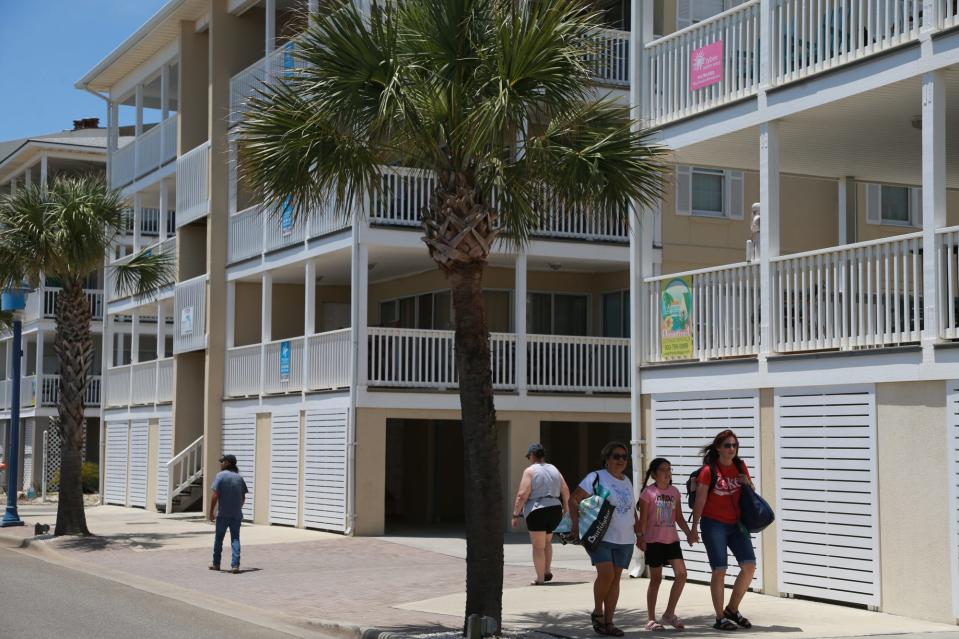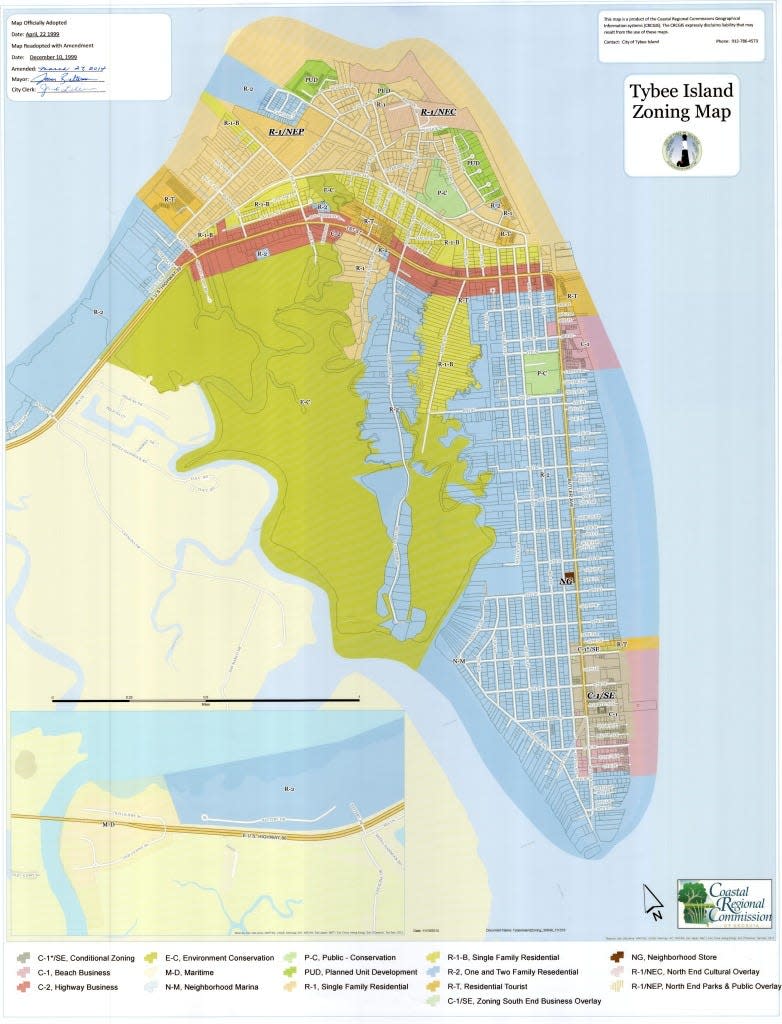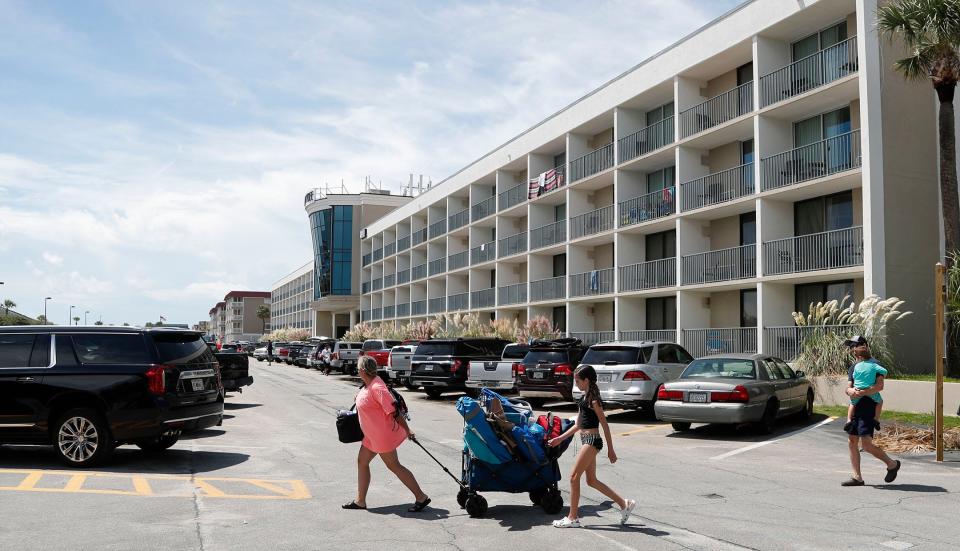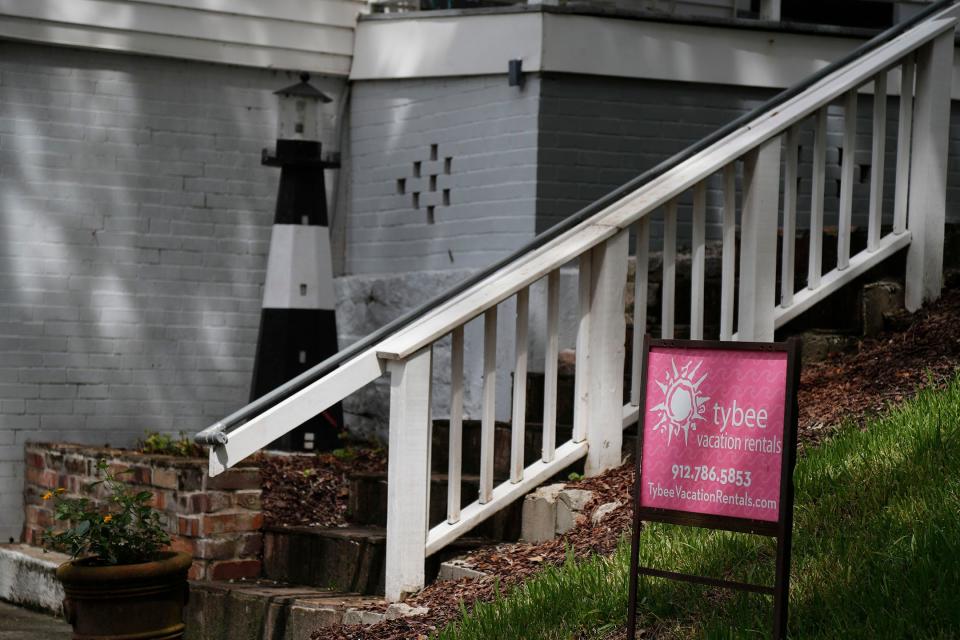Tybee caps vacation rentals. What you need to know about city council's decision, new rules
After years of debate and deliberations, Tybee Island City Council voted Thursday to ban new short-term vacation rentals, or STVRs, in the island's residential neighborhoods.
Council passed a number of new regulations aimed at limiting the number of STVRs on the island. Defined as dwellings rented to guests for 30 days or less, STVRs and how to regulate them have taken the local spotlight as the beach town’s popularity surged with tourists in recent years. Tybee first adopted an STVR ordinance in 2016.
Among the amendments passed Thursday is a provision barring STVRs from specified residential districts. The majority of the island is zoned residential, and, over the years, longtime residents’ complaints of disruptive “party houses” and a diminished sense of community have grown louder, prompting the city to reexamine the burgeoning vacation rental industry.
Last meeting: Draft of Tybee STVR ordinance draws two hours of public comment. Here's what you need to know
Ongoing lawsuit: Lawsuit: Tybee vacation rental operators call STVR ordinance 'unenforceable'
'We are going to damage the island': Tybee residents weigh tourism impact on quality of life
STVR proponents, however, are fighting back with a lawsuit. In anticipation of the city's move for stricter regulations, the Tybee Alliance, a group of property management companies and STVR owners, filed a complaint against the city last week, claiming that their STVR ordinance is not enforceable.
In a statement released Friday afternoon, Tybee Alliance said, "We believe that many if not all of the amendments passed last night are ripe for legal challenge. The Alliance will initiate additional legal action accordingly."

According to the city’s last accounting in September, about 36% of residential-zoned properties held an STVR permit. However, not all properties may choose to operate as an STVR year-round. As Tybee drops into the off-season, some homeowners are returning to the island and taking their dwellings off rental sites like Airbnb and VRBO.
Looking at the island as a whole, about 45% of the city’s total dwellings hold a rental permit and can operate as one. But STVR owners will soon have to comply with additional regulations lest they lose their permit.
Here’s a look at the amendments passed:
Read the ordinances here: Tybee Island 10-13 council meeting STVR amendments
No new STVRs in residential zones
STVR permits will no longer be issued for properties in residential-zoned districts, unless the city implements exceptions. The ordinance amends Tybee’s Land Development Code by restricting STVRs as a use in residential zones (except for R-T or residential tourism zone). It is also essentially codifying the STVR moratorium enacted last September.
The ban does not apply to existing STVRS nor do they apply to zones outside of the R-1, R-1-B and R-2 districts.
Dive deeper: No room at the inns? Demand for lodging on Tybee Island fuels economy, strains neighborhoods
'You just don't come and go': Eating out, shopping, running errands are chores of Tybee summers
The city council had previously discussed a compassion clause, which would allow certain homeowners with financial hardship to obtain an STVR permit so they could rent for extra income. The clause was not included in the amendment but remains open for discussion.
The city is also planning to revisit allowing STVR permits for owner-occupied properties, defined as those where the homeowner lives in the dwelling while renting out to guests, similar to but not identical to a bed and breakfast. City council is awaiting the final results of a 5th U.S. Circuit Court ruling that barred New Orleans from implementing a similar law.

Notice of and abandonment of nonconforming use
With the new ban in place, existing STVRs in residential zones will be considered a “nonconforming use”. If the property loses its permit, it will not be allowed to obtain another.
The new provision also states that STVRs in the restricted residential zones must operate as a rental for at least 90 days within a 12-month period. If not, it’ll be presumed that the short-term rental use is “abandoned” and the permit could be revoked.
This will go into effect May 2023.
Homestead Exemption
Owners who have lived at their homesteaded residence for at least five years can apply for an STVR permit that will last up to three years, rather than the usual one year.
If the original owner is deceased, the new owner of the estate can still apply for the three-year permit within one year of the death.
Transfer of permit
If an STVR property is being transferred to a new owner, that new owner can reapply for the permit. The city has yet to establish a time limit for when the new owner will be able to reapply. The planning commission may discuss this at their next meeting.

Allowances
Any structure on a property that contains multiple STVR units must have a permit for each unit. In residential zones, if a property identified by a single parcel identification number has more than one structure on it, only one structure is eligible for a permit.
This will go into effect May 2023.
Caps in certain zoning districts
The new ordinance includes a clause that will allow the city to set a cap, or limit, on the number of STVRs in a zoning district. The clause does not specify what the cap is but lays the groundwork for one.
No new STVR permits will be issued when the maximum number of STVRs has been reached in that specified district. The city will have to establish a waiting list system if a cap is implemented.
Other amendments
Other revisions were brought up for a first reading during September’s meeting and were codified Thursday night. Those include:
Specifying that an STVR owner must provide proof of insurance of an STVR unit within 30 days of receiving a permit.
Enforcement requirements. If an STVR violates certain city ordinances (such as noise violations, nonpayment of taxes, and marketing restrictions), it will result in a citation. Failure to address those violations within 30 days will trigger a process to determine if the STVR permit should be revoked.
Refusing to comply with a verification process established by the city will also count as a violation.

Future discussion
The city council tabled an ordinance amendment that outlined new parking requirements for STVRs, saying that the provision needed more work. The city is also working on allowing certain property owners who were in the middle of constructing or renovating their homes when the STVR moratorium was implemented to still apply for a permit.
Nancy Guan is the general assignment reporter covering Chatham County municipalities. Reach her at nguan@gannett.com or on Twitter @nancyguann.
This article originally appeared on Savannah Morning News: Tybee officially bars short-term vacation rentals in neighborhoods

